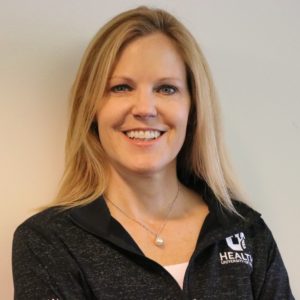Untangling Alzheimer’s research
What makes dementia so difficult to define? Why has research been so slow to identify treatments? Why don’t we have a cure yet? These are just some of the questions families ask amid the frustration and pain of watching a loved one decline mentally and physicially from Alzheimer's disease.
The global Alzheimer’s research community is still trying to figure out how the disease works, and every answer seems to lead to more questions, explained Ara Khachaturian, PhD, Executive Editor, and Zaven Khachaturian, PhD, Editor-in-Chief of Alzheimer’s & Dementia, the journal of the Alzheimer’s Association, in a special submission to Medpage Today. Pushing research forward, they write, means tackling three formidable challenges: 1) understanding the complexity of the disease, 2) finding a way to detect the disease earlier and 3) ramping up clinical trials efforts.
Complex expressions
When it comes to neurological conditions, dementia is not the average bear. Alzheimer’s disease is so complex that scientists haven't isolated the cause, if there is one. The biggest discovery about Alzheimer’s to date may be that there is no single expression of the disease, making it difficult to define and even harder to catch early on.
Until recently, researchers assumed the defining answer to Alzheimer’s disease is hidden somewhere amid too many beta-amyloids and tau tangles. But those may turn out to be more symptoms than the root causes, as we first thought. The more we study the disease, the more the scientific community sees a wider and wider range of risk factors—everything from various genetics and comorbidities to eating habits and lifestyle choices.
“Now it appears that Alzheimer's may not be a single disease, but rather a ‘heterogeneous’ condition with differing patterns of expression,” the Khachaturians write. “This means the disorder (or syndrome) has different forms, where individuals may differ in their age of onset, behavioral-clinical profile, neuropathology, family history, genetics, risk factors, lifestyle and other comorbid conditions.”
The “before” stage
Most of the clinical trials so far have focused on subjects who already have clinical symptoms and on developing treatments to stave off or improve those symptoms. But the most recent research has revealed that dementia can have a very long prequel stage where the disease is developing without any apparent outward symptoms. “This discovery that the disease has a long, clinically silent stage has begun to define the new frontier for the discovery of cures,” the authors write.
The other side of the array-of-factors coin is that interventions—including exercise, brain training, cardio-healthy diet and others—can play an important role in slowing the progression of the disease.
Therefore, the big push is to find tools and technologies that can help clinicians detect the disease at earlier stages. That, of course, means knowing what risk factors matter most in the early development of the disease—and filling in what the authors call “major gaps” in understanding the biology of Alzheimer’s disease.”
Clinical trial recruitment
The need to learn to detect the disease earlier and earlier raises the emphasis on clinical trials—including trials and research projects that include people with no diagnosis or notable symptoms. Does gender matter? Does ethnicity matter? Current research has shown that the disease seems to express itself differently in some people—and no one knows why.
The Brain Health Registry and other projects are reaching out to healthy individuals in an attempt to build a database of “before” data and assist researchers in targeting clinical trial participants. Others are creating games and crowdsourcing to capture as much data as possible in a short span of time.
Regardless of the approaches, researchers will make the fastest progress on unlocking the mysteries of Alzheimer’s disease if they can tackle the above challenges. Encouraging family members to become part of clinical trials or crowdsourcing efforts can help researchers gather data and give families give them a sense of purpose at the same time.
Read the entire article by the Khachaturians in Medpage Today.

Pamela Tabar was editor-in-chief of I Advance Senior Care from 2013-2018. She has worked as a writer and editor for healthcare business media since 1998, including as News Editor of Healthcare Informatics. She has a master’s degree in journalism from Kent State University and a master’s degree in English from the University of York, England.
Related Articles
Topics: Alzheimer's/Dementia , Articles











